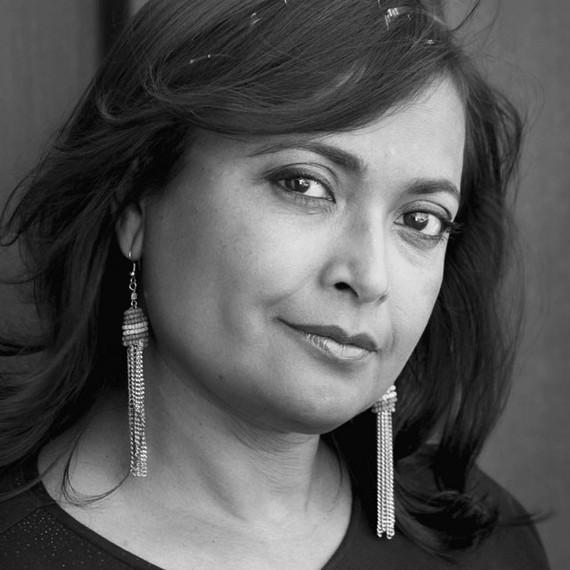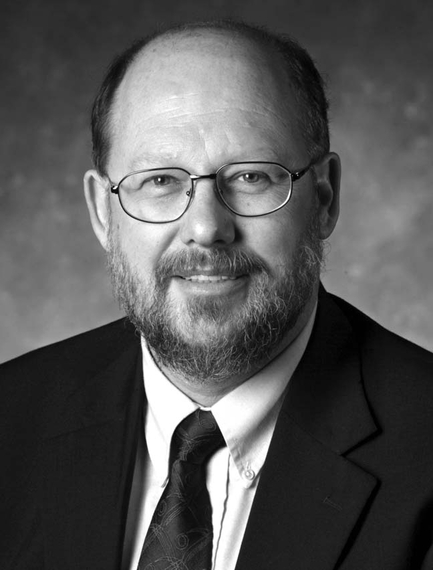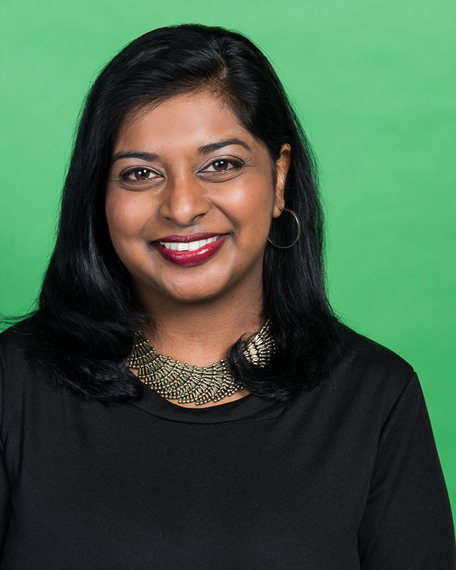My third interview was with Gita Pather, the Director of Theatre at the University of the Witwatersrand (Wits) in Johannesburg, South Africa.  Photo credit: Classicfeel
Photo credit: Classicfeel
Joy Ngoma: South Africa is celebrating 20 years of freedom this year- what does that mean to you and fellow South Africans?
Gita Pather:
I remember the 27th of April 1994 as if it was yesterday.I remember my own personal sense of achievement and almost disbelief that the day had actually come.
20 years later while I am proud of being South African, I am dismayed by how far we have strayed from the ideals and hopes that buoyed the struggle. The ANC (African National Congress Party) was my political home but today I am ashamed of the leaders who loot and steal and who manifest such a total disrespect for the citizens of this country. The ANC leadership appal me not because they are all corrupt but because they allow those who are- to set the agenda. They don't speak up and when they do ...mouth empty party platitudes. Occasionally after an enriching tenure in government, they suddenly rediscover their moral voice which was effectively silenced by the trappings of power. Joy Ngoma: A lot of people all over the world have been voicing their opinions about Nelson Mandela's legacy since his passing last year. What is a Nelson Mandela legacy? Does such a thing exist? And in terms of this country what is the legacy that Mandela left behind?Gita Pather:
Nelson Mandela embodied the absolute best of African South Africans. This democracy was won pretty peacefully if one considers the potential there was for a bloodbath. He was a huge influence in helping people temper their anger, embrace the possibility that we could be a united harmonious multicultural society, that we could get past the anger and hurt and shame. So at that level I fervently hope that we will carry that legacy of love in our hearts.
However I also think that we should have implemented more radical plans to aggressively redress the injustices of the past...especially the economic conditions of the majority of people who continue to live in poverty and have no hope for a better future which has always been the prerogative of a White minority. That hasn't changed. Real power which its economic still resides squarely within White hands. The only enrichment that has come of BEE (Black Economic Empowerment) is the gross aggrandizement of a few politically connected Black elite. His rather liberal stance allowed that to happen and I understand why he chose such a path. He was too good a man to understand that he may have been incorruptible but the vast majority of the ANC elite are certainly not. White privilege continues at the expense of Black people even though most white people would deny that vehemently and yet how can one ignore that reality?
Joy Ngoma:Where would you like to see the country in 20 years? Gita Pather: True democracy based on the rights encapsulated by our constitution and actually delivered to the people of South Africa through a competent government whose president is elected and not foisted on the rest of us. I want our country to embrace the notion that real leadership is about vision and skills and the ability to deliver. This election system that means we are saddled with an inept buffoon of a president is intolerable. How can we espouse the value of education if we continue to appoint and allow the ignorant and unschooled to lead?
Joy Ngoma: Has South Africa truly become a free and democratic society/ country or is that just an illusion we are meant to believe?Gita Pather: I think young people believe we are free especially if they come from priviledged backgrounds. But for the rank and file whose material lives have actually become worse, the notion of democracy is merely an idea and the act of voting. It has not manifested in their lives, their lived experience and it certainly renders their vote a meaningless victory. Joy Ngoma: What has been our greatest achievement as a people of SA? Gita Pather: Our wonderful way of getting on with it. I am constantly amazed by how people with so little manage still manage to smile. I love our fearlessness in the face of outrageous crime against all people but especially women and children. That comes from an innately strong place and we are still managing to hold onto that. Joy Ngoma: What does freedom mean to you? Gita Pather: Apart from the supposed protection afforded by the constitution?
Freedom for me is a personal daily endeavour to define and order MY way of life unconstrained by notions of who I should be. Freedom for me is not being defined by my gender, my race, my ethnicity.
As someone who grew up in a ghetto with a mum barely able to put food on the table: freedom for me is also about being financially independent.Joy Ngoma: What would you like your legacy to be for South Africans? Gita Pather: I have strive to always live truthfully and my greatest fear has always been that if faced with a moral issue ...would I always be capable of doing the right thing no matter what the consequence? I have and the impact on my life and my career has been major. I will not be silenced by power; I will not play the game and refuse to be seduced by confused notions of wealth against worth. I hope that this often painful way of living my life is one day regarded as principled rather than plain stupid.
Gita Pather, serves as Director of Wits Theatre, Gita's career has been multi-faceted, spanning the performing arts, television, and arts policy, tertiary education, change management, marketing and communications strategy. A long-standing Independent newspaper columnist, published author and poet, she has a BA, Honours (Drama), Honours (English) UDW, LTCL (London Trinity); Change Management Diploma (Professional School of Psychology- UCLA). Her work has been acknowledged with numerous awards like Four Outstanding Young South Africans Award, the Post Independent Young Achiever Award, International Soroptimist Award for the Development of the Arts and USIS Arts and Culture Award
Photo credit: JohnAllen.org
Joy Ngoma: South Africa is celebrating 20 years of freedom this year- what does that mean to you and fellow South Africans? John Allen:
Freedom in South Africa means no more laws controlling access to power and privilege on the basis of the colour of your skin.
It has brought to an end the generations-long, violent oppression which was carried out by those in power to deny black South Africans their basic human rights.Joy Ngoma: A lot of people all over the world have been voicing their opinions about Nelson Mandela's legacy since his passing last year. What is a Nelson Mandela legacy? Does such a thing exist? And in terms of this country what is the legacy that Mandela left behind?John Allen: Mandela's legacy is two-fold: his self-sacrificial struggle, against seemingly overwhelming odds, to overcome oppression, and his pragmatism in promoting the inclusion of all South Africans, no matter their past histories, in the work of building a new society. Joy Ngoma: Where would you like to see the country in 20 years? John Allen: I would like to see it continuing as a vibrant democracy in which the free exchange of ideas and free organisation of civic and political life leads us to finding rational, realistic ways of growing wealth and reducing inequality. Joy Ngoma: Has South Africa truly become a free and democratic society/ country or is that just an illusion we are meant to believe? John Allen: You only have to compare the last 20 years with the previous 20 years to know that we are free and democratic. That is not to say we can't lose our freedoms - some of them are threatened but there is still lots of space to fight to keep them.Joy Ngoma: What has been our greatest achievement as a people of SA? John Allen: Ending apartheid.Joy Ngoma: What does freedom mean to you? John Allen:
Freedom to say what I think and pursue my ideals, knowing that all South Africans have the same rights - no less, no more than I do.
Joy Ngoma: What would you like your legacy to be for South Africans? John Allen:
I would like my grandchildren and great-grandchildren to know that when the country was headed for disaster, our family stood up to be counted in the fight for democracy.
John Allen is a South African journalist with experience in newspapers, news agencies, a journalists' union, churches and South Africa's Truth and Reconciliation Commission. He now helps edit and manage Africa's biggest news website, allAfrica.com. He became press secretary to Desmond Tutu--upon whom he had reported since 1976--after Tutu was elected Anglican archbishop of Cape Town in 1986. In 1996 he moved with Tutu to the Truth and Reconciliation Commission, and in 1998 accompanied Tutu to run his office at Emory University in Atlanta in the United States for two years.John Allen returned to South Africa in 2004 to write "Rabble-Rouser for Peace", a biography of Desmond Tutu. He also assisted the telecommunications staff of the Anglican Communion Office in London to launch a website showcasing news from Anglican churches around the world.
My fifth interview was conducted with Kerry Kassen, Senior Project Director at Sesame Workshop in New York. Kerry Kassen is a Senior Project Director at Sesame Workshop. Her work is focused on global initiatives and international media production. She received her MA in Media Studies and a Certificate in Media Management from the New School (NYC). She completed her BA at the University of the Witwatersrand, South Africa. She currently resides in New York City.
Joy Ngoma: South Africa is celebrating 20 years of freedom this year- what does that mean to you and fellow South Africans? Kerry Kassen: 20 years is indeed a milestone in our young democracy and it's a chance to celebrate our achievements. It also gives us an opportunity to pause and reflect on the progress that we have made, how far we've come but also to recognize the serious work that lies ahead of us.Joy Ngoma: A lot of people all over the world have been voicing their opinions about Nelson Mandela's legacy since his passing last year. What is a Nelson Mandela legacy? Does such a thing exist? And in terms of this country what is the legacy that Mandela left behind?Kerry Kassen:
There is definitely a Mandela legacy. Under his leadership reconciliation became something very real and powerful. He made us proud to be South African and gave us hope of what we can become as a nation.
Joy Ngoma: Where would you like to see the country in 20 years? Kerry Kassen:
Over the next two decades we need a sustained effort to shrink inequality. I am very proud of our constitution but until the most marginalized can share in its promise we are not equal. I believe that quality education and access to information should be at the forefront of our efforts.
Joy Ngoma: Has South Africa truly become a free and democratic society/ country or is that just an illusion we are meant to believe? Kerry Kassen: Yes, South Africa has become a true democracy because if it wasn't I would not be able to enjoy most of the opportunities that I do. However, I think that we still have a long way to go. We need to recognize that all South African's have a role to play in the welfare of our country, we need to take up the challenge to change things that are not working, we cannot afford to become complacent or disengaged.Joy Ngoma: What has been our greatest achievement as a people of SA? Kerry Kassen: A peaceful transition of a multicultural society from oppressive rule is definitely one of our greatest achievements. South Africa is a country filled with a diversity of culture, expertise, humour and strength. You see it everyday where people are striving to make a change to their lives and the lives of their children. That is and has always been our strength, when given the opportunity, wherever we are in the world, we can hold our own.Joy Ngoma: What does freedom mean to you? Kerry Kassen: It means to move, to go where I want to go because I can, but more importantly freedom for me is the ability to think for myself and to shape my future.
Joy Ngoma: What would you like your legacy to be for South Africans? Kerry Kassen: That I participated in positive change, however small and not merely criticism. Everyone has that ability.

